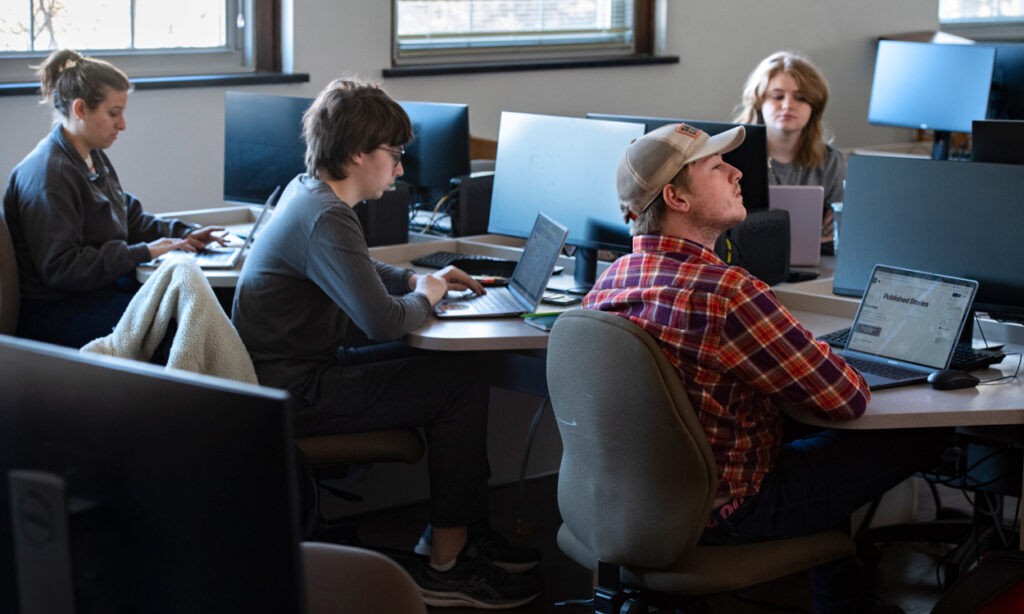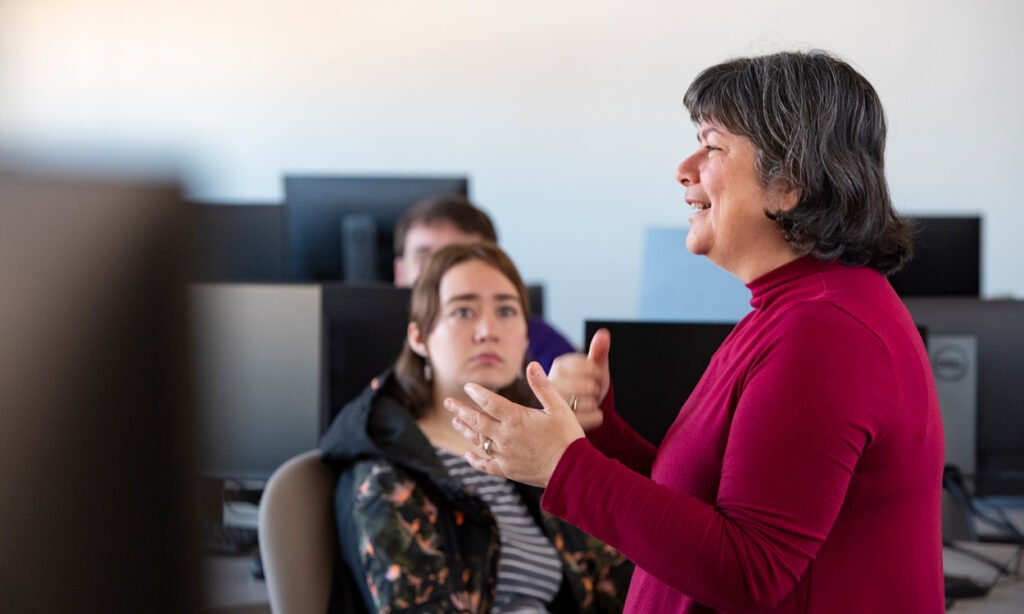Originally published by Julie Duvall on WCU Stories

Students in Katerina Spasovska’s News Writing II course at Western Carolina University are getting real-world experience writing stories for the local newspaper, the Sylva Herald.
Spasovska, an associate professor in WCU’s communication department, works with her students to do research, interviews and sit in on local government meetings, to help reporters from the newspaper cover events happening in Jackson County and those affecting its residents.
“The goal is to help the paper and make it a little easier for the editorial staff to cover local government,” Spasovska said. “Students sit in on those meetings and help provide reports for important local issues. The work of journalism starts with the little things that turn into big things, like issues being brought to the state level.”
Spasovska was recently named among 33 faculty champions recognized by The Center for Community News at the University of Vermont for her and her students’ collaboration efforts with the Sylva Herald.
Faculty from 21 states received $54,000 total in funding. Each champion received $1,000 and four of the institutions received $6,000 each.
The class began collaborating with the Sylva Herald in 2018 and have consistently provided 10 hours per semester each spring.

Through the $1,000 stipend Spasovska received, students will be able to cover more events and expand collaboration this coming fall semester.
According to a report from the University of North Carolina’s Hussman School of Journalism and Media, two thirds of U.S. counties have just one daily newspaper and more than 200 have no local newspaper at all.
Local News Initiative reported that local news is in a crisis with two community papers disappearing a week.
These university-led student reporting programs are stepping in, providing manpower and resources to these local papers to help them stay in business.
According to the CCN, research also suggests that communities with dedicated news organizations report higher levels of civic ties and community engagement; lower levels of political polarization; more transparent and competitive elections; and better economic outcomes for residents.
Not only are students helping a great cause, but they are also gaining invaluable experience they can bring to internships and their future careers in journalism.
“This course is so valuable,” said Eliza Lavway, a senior from Asheboro. “Internship applications always ask for published written samples and with it already being part of the curriculum, it makes applying for internships that much smoother.”



